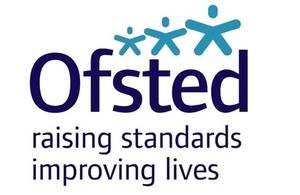Failure of leadership in tackling poor behaviour costing pupils
Low-level disruptive behaviour in classrooms across the country is impeding children’s learning and damaging their life chances.

ofsted logo
A report published today finds that pupils are potentially losing up to an hour of learning each day in English schools because of low-level disruption in the classroom – the equivalent of 38 days of teaching lost per year.
The findings draw on evidence from nearly 3,000 inspections of maintained schools and academies conducted this year, together with findings from two specially-commissioned YouGov surveys of parents and teachers and 28 unannounced inspections targeted at schools where there were concerns about poor behaviour.
Two thirds of teachers questioned for the survey complained that school leaders are failing to assert their authority when dealing with poor discipline and pupils flouting the school rules.
Typical examples of the sort of behaviour identified in the survey of teachers include pupils making silly comments to get attention, swinging on chairs, passing notes around, quietly humming and using mobile phones.
Secondary school teachers identified a greater impact on learning from low-level disruption than those in primary schools. Over two thirds of those surveyed said that it was a major problem, having medium or high impact on learning. Parents agreed, with over two fifths of those surveyed agreeing that their child’s learning was adversely affected by the behaviour of others.
The report also confirms that the inconsistent application of school behaviour policies in some schools is a source of annoyance to teachers, pupils and parents. Only a quarter of secondary teachers agreed that the behaviour policy in their school was applied consistently. Of parents who took part in the survey, just under two thirds said that the headteacher should make sure all staff applied the behaviour policy as a way of improving the learning culture.
Commenting on the findings, Her Majesty’s Chief Inspector, Sir Michael Wilshaw said:
While the days of chaos in the classroom are thankfully largely behind us, low-level disruption in class is preventing too many teachers from doing their jobs and depriving too many young people of the education they deserve.
I see too many schools where headteachers are blurring the lines between friendliness and familiarity – and losing respect along the way. After all, every hour spent with a disruptive, attention-seeking pupil is an hour away from ensuring other pupils are getting a decent education.
If we are going to continue to improve our education system to compete at the highest levels, we need to tackle the casual acceptance of this behaviour that persists in too many schools. Classroom teachers must have the support of their senior leaders to tackle these problems. It isn’t rocket science. Children need to know the rules and teachers need to know they will be supported in enforcing them.
That’s why Ofsted has tightened the guidance on behaviour for inspection and increased the number of unannounced inspections undertaken as a result of concerns. In the last year schools serving almost 450,000 pupils have been judged less than good for behaviour. That is far too many.
The report concludes that in the best schools, creating a positive climate for learning is a responsibility shared by leaders, teachers, parents and pupils. Leaders in these schools are uncompromising in their expectations and do not settle for low standards of behaviour. They do not shy away from challenging teachers, parents or pupils, where this is necessary. These leaders:
- are visible in classrooms, school corridors and grounds
- know if – and where – low-level disruption occurs and ensure that all staff deal with it
- have high expectations of behaviour and are consistent in dealing with disruptive pupils
- explain and enforce their expectations successfully to staff, pupils and parents
Notes to editors
-
At the launch of the 2012/13 Annual Report Ofsted announced targeted unannounced inspections where behaviour was a concern – 28 have been carried out.
-
Behaviour figures for the last two academic year:
Schools inspected in each academic year and the percentage of schools where behaviour was good or better:
| Schools inspected | 2012/13 | 2013/14 | Difference |
|---|---|---|---|
| Primary | 90% | 84% | -6ppts |
| Secondary | 79% | 72% | -7ppts |
| All schools | 88% | 83% | -5ppts |
Media enquiries
Clive House
70 Petty France
London
SW1H 9EX
Email pressenquiries@ofsted.gov.uk
Monday to Friday, 8:30am to 6pm 0300 013 0415
Out of hours duty press officer 07919 057 359